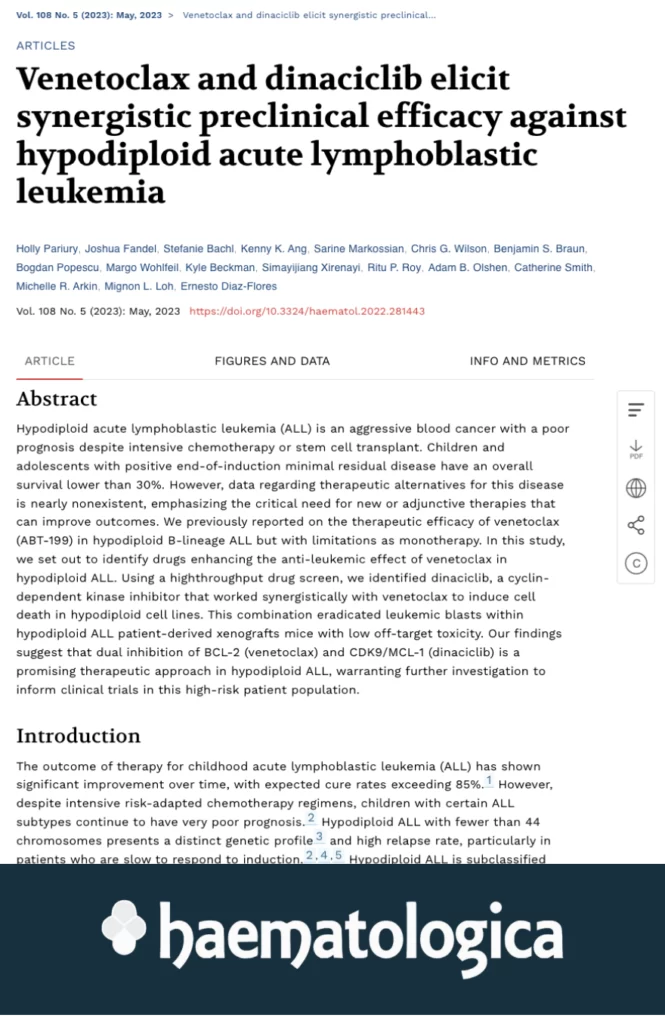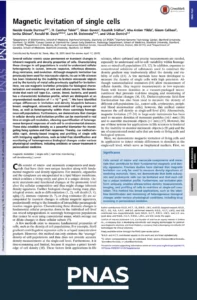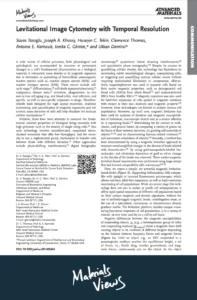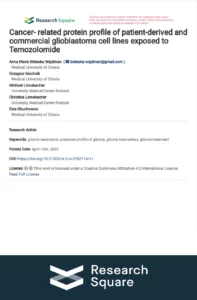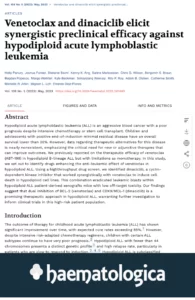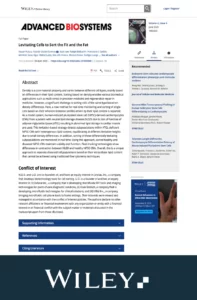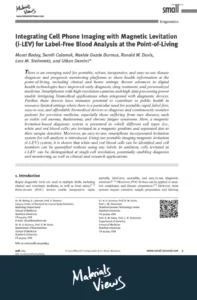Publication summary
Holly Pariury, DO, and colleagues embarked on a comprehensive exploration of the therapeutic potential of the previously known drug, Venetoclax, in combination with new compounds for treating hypodiploid Acute Lymphoblastic Leukemia (ALL), a notably aggressive form of leukemia. Through a high-throughput drug screen, the team pinpointed dinaciclib, a cyclin-dependent kinase inhibitor, that, when paired with Venetoclax, a BCL-2 inhibitor, exhibited a synergistic efficacy in inducing cell death in hypodiploid cell lines. Notably, this potent combination not only demonstrated a marked reduction in leukemic burden both in vitro and in vivo but also effectively eradicated leukemic blasts in hypodiploid ALL patient-derived xenograft mice with minimal off-target toxicity. The research highlights the pivotal role of the CDK9 pathway in hypodiploid ALL, observing elevated expressions of the mediator complex genes and MCL-1. The findings indicate that the dual inhibition approach, targeting both BCL-2 and CDK9/MCL-1, offers a promising therapeutic strategy against hypodiploid B-ALL, meriting further studies to pave the way for clinical trials in this high-risk patient demographic.
Drug screening success start with high quality cells obtained with Levitation Technology
In understanding the interplay of MCL-1 and its therapeutic implications in hypodiploid ALL, the team utilized lentiviral transduction to generate stable isogenic cell lines with MCL-1 overexpression or knockout via short hairpin RNA. Post-lentiviral transduction, cells are selected either by EGFP fluorescence-activated cell sorting (FACS) or puromycin selection. Both methods lead to significant cell stress and/or death, which impacts the quality of the resulting cell suspension, potentially affecting drug screening efficacy. To prevent this, the team utilized the LeviCell® 1.0 system to enrich the selected isogenic cells expressing MCL-1 for viability, ensuring a successful drug screening process that identified a combinatorial treatment that can effectively improve patient prognosis.

